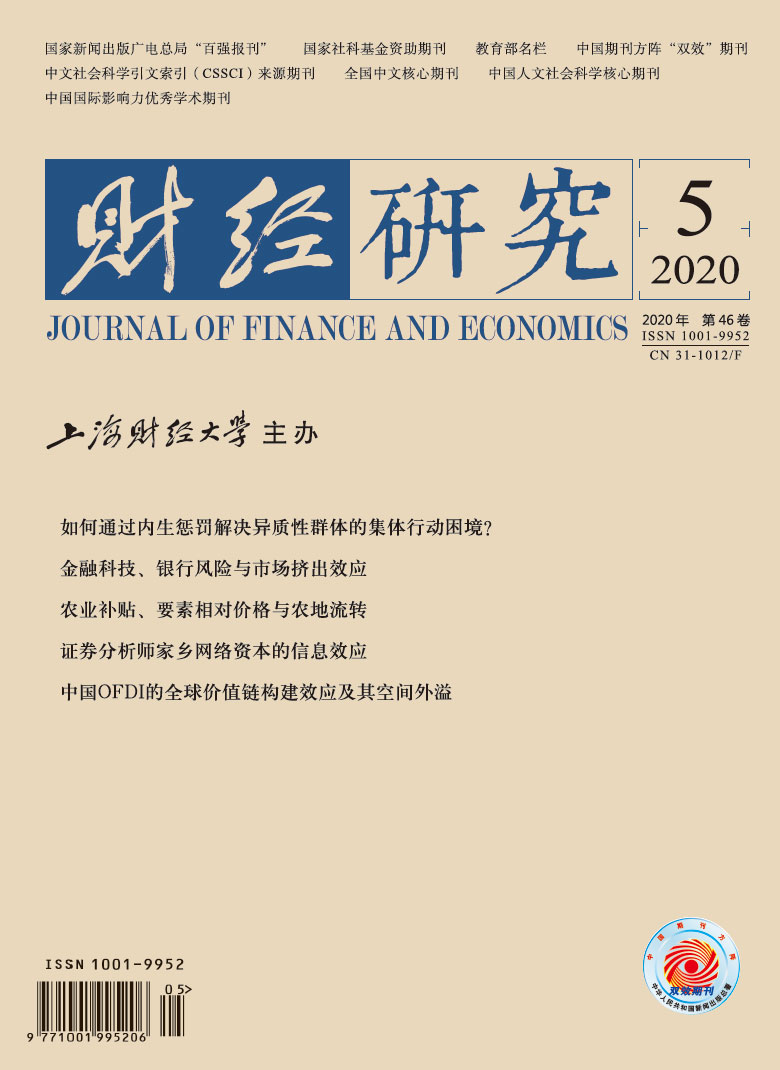Based on the micro data of CFPS, this paper empirically studies the poverty components, changing trends and influencing factors of families in ethnic areas in China. The results show that the incidence of poverty in ethnic areas is on the whole decreasing trend, but chronic poverty measured by the weight of family population is slightly increasing. There is a threshold effect in precipitation education. The labor force of “Supporting Intelligence” until junior college or above can significantly alleviate chronic poverty. At the same time, in incremental education, the students of junior college or above can significantly aggravate chronic poverty. There is a contradiction between the two. In addition, skill training has a global impact on all components of poverty. The improvement of the average level of education for the head of household can restrain chronic poverty. The ability to respond has an expanding effect through skill training. Based on this, the paper puts forward some suggestions, such as the introduction of the special act of rural education in ethnic areas, the management and training plan of talents’ intelligence, the promotion of Putonghua, and the integration of ethnic languages and Chinese.
 / Journals / Journal of Finance and Economics
/ Journals / Journal of Finance and EconomicsJournal of Finance and Economics
LiuYuanchun, Editor-in-Chief
ZhengChunrong, Vice Executive Editor-in-Chief
YaoLan BaoXiaohua HuangJun, Vice Editor-in-Chief
How does “Supporting Intelligence” Alleviate Chronic Poverty? Evidence from Ethnic Areas in China
Journal of Finance and Economics Vol. 46, Issue 05, pp. 155 - 168 (2020) DOI:10.16538/j.cnki.jfe.2020.05.011
Summary
References
Summary
[1]Gao Yufeng. Poverty alleviation through vocational education in China: from full coverage to accurate[J]. Chinese Vocational and Technical Education,2017,(6):37−41.(In Chinese)
[2]Lin Chengdong. On the Improving Education[J]. ETHNO-NATIOAL STUDIES, 1997,(3), 43−52.(In Chinese)
[3]Meng Zhaohai. Theoretical Basis and Prerequisite of Poverty Alleviation Policy by Education -International Experiences and Native Reflections[J]. Education Research,2016, (11): 47−53.(In Chinese)
[4]Wang Jiay,Feng Qingyun& Zhang Jin. Education and Targeted Poverty Alleviation[J]. Education Research, 2016,(7):12−21.(In Chinese)
[5]Weng Weibin. Poverty Alleviation by Vocational Education: The Important Mission of Developing Vocational Education Responsibility by Government[J].Theory and Practice of Education, 2017,(15):21−24.(In Chinese)
[6]Xu Fenghua. Accurate poverty alleviation: A new orientation of the Vocational and Technical Education Development in Minority Areas[J] Journal of Higher Education,2016,(11):64−69.(In Chinese)
[7]Yuan Liping, Wan Jiangwen. The Theme Composition and Frontier Trends of Education Poverty Alleviation Research Focuses in China[j].JOURNAL OF NATIONAL ACADEMY OF EDUCATION ADMINISTRATION, 2017,(5):58−65.(In Chinese)
[8]Zhang Hongjun.The causes and Countermeasures of "education leading to poverty" of the vulnerable groups[J]. ACADEMIC FORUM,2010,(3):202−205.(In Chinese)
[9]Zhang Yuan,Wan Guanghua and Shi Qinghua. Chronic Poverty and Transient Poverty in Rural China:Decomposition and Their Determinants[J]. ECONOMIC RESEARCH JOURNAL, 2013, (4): 119−129.(In Chinese)
[10]Becker G S. Human capital and poverty alleviation[R]. Human Capital Working Paper 14458,1995.
[11]Foster J,Greer J,Thorbecke E. A class of decomposable poverty measures[J]. Econometrica,1984,52(3):761−766.
[12]Jalan J,Ravallion M. Is transient poverty different?Evidence for rural China[J]. The Journal of Development Studies,2000,36(6): 82−99.
[13]Marshall A. The principles of economics[J]. Politicla Science Quarterly,2004,77(2): 519−524.
[14]Myrdal G. Rich lands and poor:The road to prosperity[M]. New York:Harper,1957:123-166.
[15]Nurkse R. Problems of capital formation in underdeveloped countries[M]. New York:Oxford University Press,1953:224-226.
[16]Nurkse R. Problems of capital formation in underdeveloped countries[J]. Punjab University Economist,1966,( 24) :1−23.
[17]Pareto V. The mind and society:A treatise on general sociology[M]. New York:Harcourt Brace,1935:308-359.
Cite this article
Wei Jifei. How does “Supporting Intelligence” Alleviate Chronic Poverty? Evidence from Ethnic Areas in China[J]. Journal of Finance and Economics, 2020, 46(5): 155-168.
Export Citations as:
For




 5632
5632  5816
5816

